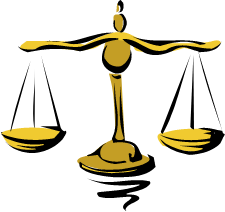| Case Number | APPEAL NO. 4 OF 2015 |
| Summary | The Appellants instituted a Reference in 2013 against the Attorney General of Uganda, as legal representative of the Republic of Uganda, complaining inter alia that there were long standing vacancies in the High Court, the Court of Appeal and the Supreme Court of Uganda that had not been filled due to the President of Uganda’s refusal to appoint Judges as required by the laws of Uganda. This they averred was an illegality under the EAC Treaty. While the Trial Court found that it had jurisdiction over the subject matter, it held that: no evidence had been adduced to prove that the President of Uganda had refused to effect the alleged judicial appointments; and that the attempt by the Appellants to depart from the content of the Reference by introducing new issues concerning the omissions of the Judicial Service Commission instead of focusing on the inactions of the President was contrary to Rule 40 (1) of the Court’s Rules of Procedure, 2013. Hence the case was dismissed. On appeal, the Appellant alleged that the Trial Court erred in law: by holding that the President had not arbitrarily refused to appoint judges in the High Court, the Court of Appeal and the Supreme Court of Uganda as required by law and in breach of the Treaty. The Respondents submitted that the issue of refusal by the Judicial Service Commission to forward names to the President as recommended was never raised in the Applicants’ pleadings and that it amounted to a departure from Pleadings contrary to Rules 37(1) and 40(1) of the Rules of the Court. |
| Respondent | ATTORNEY GENERAL OF THE REPUBLIC OF UGANDA |
| Complainant | SIMON PETER OCHIENG JOHN TUSIIME |
| Date filed | |
| Countries | Uganda |
| Keyword | Error of law , Miscarriage of justice , Requirement of an Appeal |
| Treaty Article | Article 35 A , Rule 40 , Rule 77 |
First Instance Judgment
| Verdict | As depicted earlier in this Judgment, the Declarations sought from this Court hinged on the alleged refusal by the President of the Republic of Uganda to appoint judges to the Supreme Court, Court of Appeal and High Court of Uganda. We note that the Prayer in paragraph (a) has been exhaustively addressed by this Court, it being a reference to the alleged refusal to effect judicial appointments occasioning a breach of the principles of rule of law and good governance in general terms. We carefully considered the principles of good governance and rule of law in our determination of the preceding issues, and found that the President’s preferred course of action did not violate the said principles. However, in Prayers (b), (c), (d) and (e) the Applicants specifically attributed the President’s alleged refusal to interference with the independence of the Judiciary; violation of the right to a fair hearing; violation of fundamental rights and freedoms guaranteed by the Ugandan Constitution, and stifling of the Ugandan Judiciary’s capacity to fulfil its constitutional mandate. Having found, as we have, that the fact of refusal has not been established before this Court, we did not deem it necessary to delve into the question as to whether or not the unproven refusal did in fact manifest the specific violations complained of therein. Perhaps more importantly, the Applicants did not address us on these specific allegations at all. With respect, therefore, we are unable to grant the Declarations sought by the Applicants. We note that although costs were prayed for by the Applicants, there were never in issue in the Joint Scheduling Memorandum agreed upon by both Parties. We do appreciate that ordinarily costs should follow the event, however, we take the considered view that the present Reference did clarify issues of public interest and administrative importance with regard to the process of judicial appointments. We are respectfully guided by the approach of the Appellate Division of this Court which, in the case of Attorney General of Tanzania vs. African Network for Animal Welfare EACJ Appeal No. 3 of 2014, held:- “The Applicants have, against all formidable odds, partially triumphed in their quest (in this, the first Environmental Case of its kind to be brought before this Court). They brought the Reference and have prosecuted it not out of any wish for personal, corporate, or private gain; but out of the public spirited interest of the noblest kind – namely conservation and preservation of a natural resource which (in this particular case), is truly a rare heritage, one-of-a kind for all mankind. It is only fair, therefore, that neither Party be condemned to pay the costs of the other in this litigation, both here and in the Trial Court below. Rather, each Party should bear its own costs. We so order.” Similarly in the case of Barclay (Guardian ad litem) vs. British Columbia 2006 BCCA 434 (CanLii) matters of public interest were identified as exceptions to the general rule. It was held (per Mackenzie JA):- “The strictures of the general rules in private litigation are modified to some degree in litigation which engages a broader public interest beyond the pecuniary interests of the particular plaintiffs who pursue the action.” With respect, therefore, we do hereby dismiss the Reference and order each party to bear its own costs. It is so ordered. |
| PDF document | Download the decision as PDF |
| Date delivered | August 7, 2015 |
| Quorum |
Appeal Judgment
| Verdict |
|
| PDF document | Download the decision as PDF |
| Date delivered | November 24, 2016 |
| Quorum |
